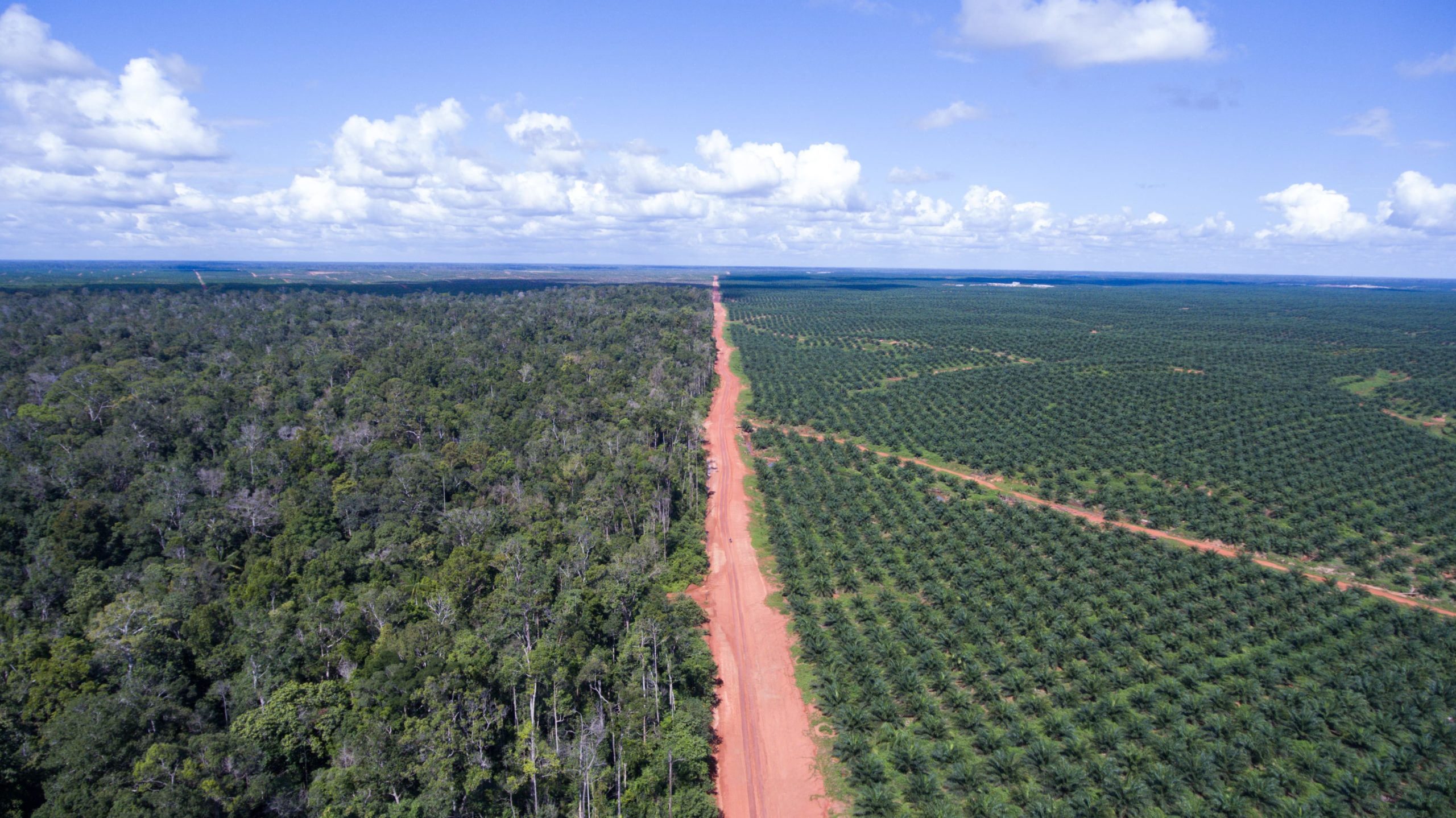
Indonesia’s Omnibus Bill Approval Poses Dire Threat to Anti-Deforestation Efforts
Palm Oil Industry Should Resist Legislative Rollback of Deforestation Restrictions
The Indonesian parliament passed a controversial economic stimulus “Omnibus Bill” today despite significant opposition from environmental and Indigenous rights groups and international investors’ concerns that elements of the new law will worsen deforestation and land rights abuses and reverse recent successes in reducing forest loss. The decision by Indonesian lawmakers to approve the bill with those elements intact also threatens to negate meaningful progress made by the palm oil sector toward adopting more responsible production practices.
“Today the Indonesian parliament made a ruinous false choice between environmental sustainability and economic growth by effectively legitimizing uncontrolled deforestation as an engine for a so-called pro-investment job creation policy,” said Phelim Kine, Senior Campaigns Director with Mighty Earth. “That’s a tragic miscalculation because foreign investors and major trading partners are increasingly basing their investment and import decisions on standards of environmental sustainability that will protect Indonesia’s priceless forest cover and biodiversity rather than destroy it.”
President Joko “Jokowi” Widodo’s administration has justified the new law’s expansive provisions, which involve the insertion of 174 new articles into 79 existing laws governing areas including taxation, labor, investment and the environment, as an essential job creation tool amidst the Coronavirus pandemic. But the new law includes multiple provisions that analysts warn will worsen deforestation in Indonesia and, by extension, inflict international reputational harm on the palm oil sector. An analysis by the Indonesian nongovernmental organization Madani has warned that the new law weakens existing legal protections for natural forests with catastrophic potential impacts, including the complete destruction of natural forest cover in the provinces of Riau, Jambi, South Sumatra, Bangka Belitung and Central Java over the next two to three decades.
Some of the new Omnibus Law’s troublesome provisions reportedly include:
|
Parliament approved the new law despite the government’s inadequate public consultation on its substance and implications. On October 5, a grouping of global investors managing $4.1 trillion in assets issued a letter to the Indonesian government stating their concerns about “the negative impact of certain environmental protection measures affected by the Omnibus Bill.” In July, a coalition of Indonesian environmental and civil society groups warned in a public letter to domestic and international financiers that the bill’s passage would mean that “Indonesian current laws and regulations will no longer comply with globally accepted environmental and social safeguards.” That same month, the World Bank’s Indonesia and Timor Leste country director, Satu Kahkonen, cautioned that the Omnibus Bill would “move Indonesia’s environmental legislation further away from the implementation of best practices.”
Indonesia’s palm oil sector is particularly vulnerable to blowback from importers due to the new law’s problematic environmental provisions. Major palm oil importers including the European Union and United Kingdom are considering increasingly more stringent environmental standards for agricultural imports, including palm oil. Industry implementation of “No Deforestation, No Peatland, No Exploitation” (NDPE) policies has helped ensure Indonesian producers can meet those standards. Passage of the bill will likely encourage more deforestation by palm oil producers, tainting the industry and its customers as a whole. The bill’s pro-deforestation elements also fly in the face of the Indonesian government’s enactment in August 2019 of a permanent moratorium on forest clearing for timber and plantation development.
“Indonesian palm oil firms are on notice that they shouldn’t undermine years of progress they’ve made in driving down deforestation linked to palm oil production just because the Omnibus law now makes it easier for companies to decimate forests and ecosystems,” Kine said. “The palm oil sector should recognize that the long-term viability of its export business hinges on policies that protect forests rather than destroy them. Taking advantage of the new law’s loosened requirements will be a massive step backwards for the industry.”
Despite the reputational and economic stakes, major palm oil traders including Wilmar, Golden Agri, Musim Mas, RGE Group, Bunge, Sime Darby, and Louis Dreyfus remained publicly silent about the Bill. Major consumer goods producers including Unilever, Cargill and Nestle, who have committed to NDPE policies, have likewise not expressed concerns about the bill. The only major palm oil company to comment on the bill was Astra Agro Lestari (AAL), whose Vice President Director, Joko Supriyono, expressed unqualified support for the legislation. By doing so, Supriyono flouted AAL’s own NDPE policy and contradicted AAL’s parent company, Jardine Matheson’s, expression of explicit support last week for international regulatory measures to rein in deforestation.
“Now that the Bill is law, the battle shifts to implementation. The Indonesian government should ensure that it formulates the new law’s specific implementing regulations in close consultation with environmental and civil society organizations to mitigate its malign implications for the country’s forests,” Kine said. “And the palm oil sector should demonstrate its willingness to hold itself to environmentally responsible production standards despite the government’s failure to do so.”


